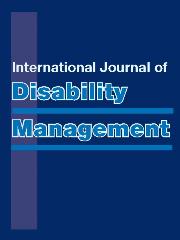No CrossRef data available.
Article contents
Experiences of Medical Advisors in the Workers' Compensation System in British Columbia
Published online by Cambridge University Press: 23 February 2012
Abstract
Attending physicians and medical advisors, physicians contracting their services to the Workers' Compensation Board, have key roles in assisting injured workers to return to work. A literature review of the role of the physician in the compensable return to work process reveals a lack of information regarding the experiences of medical advisors. This descriptive phenomenological study was undertaken to explore the lived experiences of four medical advisors in a northern rural service delivery location. The purpose of the research was to gain an understanding of the medical advisors' experiences in the compensable return to work process and in the compensation system. Analysis of the interview data revealed a central theme of commitment to quality medical care for injured workers, along with three major themes and several minor themes subsumed within the major concepts: providing medical opinions — requiring factual information, clarifying the diagnosis, no previous relationship with worker, categories of injuries; working with attending physicians and specialists — building relationships, evidence based treatment plans, role of the attending physician, role of the medical advisor; and, working within the workers' compensation environment — structure and policies, expedited services, and case management/team environment. This research report presents the central theme as the foundation through which the major themes are interconnected. This study does not generalise to all medical advisors, but relays stories that contain the essence of a lived experience.
Keywords
- Type
- Article
- Information
- Copyright
- Copyright © Cambridge University Press 2007


